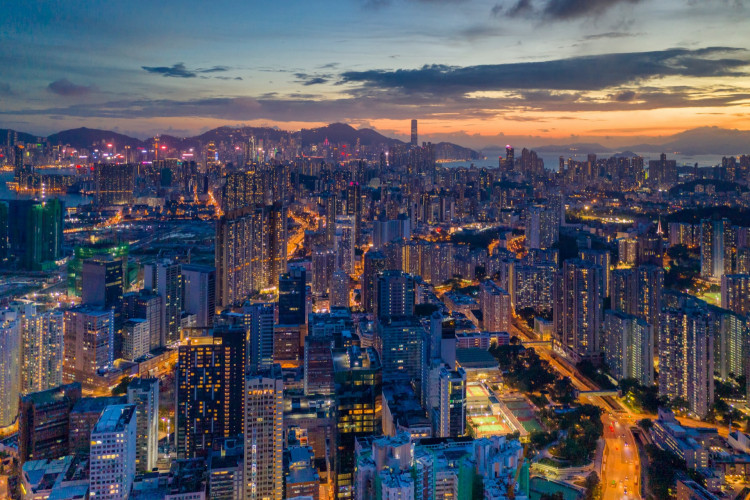Because of its stringent COVID-19 policies, Hong Kong may not reopen until early 2024, risking an outflow of foreign firms and workers and jeopardizing its role as a financial hub.
The European Chamber of Commerce stated in a draft that was examined by Reuters but not made public that the low efficiency of locally created vaccinations is pushing mainland China to retain tight travel restrictions.
While Hong Kong was able to keep the virus under control for the majority of 2021, it has become one of the world's most isolated cities due to travel restrictions and intermittent lockdowns, which has accelerated a brain drain from the former British colony.
The most likely scenario for Hong Kong is that it will remain closed until China's mRNA vaccine is implemented across its 1.4 billion population, which could take until late 2023 or early 2024, according to the report.
If this is the case, the chamber warns that a "cascade effect" of companies leaving the Asian financial hub could occur.
"We anticipate an exodus of foreigners, probably the largest than Hong Kong has ever seen, and one of the largest in absolute terms from any city in the region in recent history," it said.
In January, Hong Kong experienced an increase in infections, which authorities have been battling to contain.
According to the chamber, given the scenario, multinational businesses would progressively relocate China-focused teams to the mainland or shift their Asian regional teams to Singapore or Seoul.
Hong Kong's appeal as an international business hub, as well as its capacity to contribute to China's economy, may dwindle.
Unlike the rest of the Chinese mainland, Hong Kong is reliant on business travelers and imported goods.
Its function as one of the world's primary transhipment and passenger hubs has been severely hampered by rigorous flying limitations, which allow just a small number of people to land and only a small number of people to travel.
Singapore, on the other hand, has relaxed its coronavirus restrictions, including border checks.
Only over 70% of Hong Kong residents have had two vaccinations, compared to 91 percent of Singapore's eligible population.
The majority of Hong Kong's elderly are unvaccinated.
The chamber recommended to the government that vaccinations be accelerated and quarantine reduced from 21 days to seven to 14 days, which would favor the international business community.
Foreign companies should anticipate Hong Kong being "semi-closed for international travel in the next 12-36 months."






